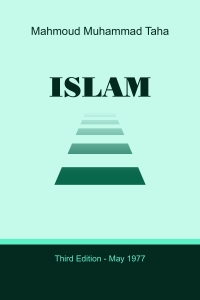The Second Message
Economic Equality
The time has come to elaborate on the second message by advancing the legislation of the first message to better realize the [ultimate] religious goal. This development is based on two pillars: the needs of the current society and the spirit of Islam as lived by the Prophet.
The spirit of Islam, as embodied by the Prophet, is absolute individual freedom. The need of the present society is comprehensive social justice. Comprehensive social justice can only be achieved through three equalities: economic equality, political equality, and social equality.
Economic equality entails establishing both a maximum and a minimum income level for individuals. The minimum income must be guaranteed for all citizens, including children, the elderly, and those unable to produce, ensuring a standard of living that preserves human dignity. The difference between the minimum and maximum income should not exceed sevenfold, preventing the emergence of class disparities that would make interclass marriage unthinkable.
Economic equality is realized through socialism, which involves increasing production using machinery, improving administrative and technical expertise, and ensuring the fair distribution of this production based on the principles mentioned. Socialism cannot exist without limiting private ownership to prevent it from extending to the means of production.
Individuals may own homes, the gardens surrounding them, furnishings, vehicles, and similar personal properties, but not land, factories, or other means of production. Even within these narrow limits, ownership is a form of usufruct (irtifaq), and not absolute ownership.
This transition in legislation stems from the verse of lesser zakat: “Take, [O Muhammad], from their wealth a charity by which you purify them and cause them increase, and invoke [Allah’s blessings] upon them.” (9: 103) to the verse of greater zakat: “They ask you what they should spend. Say, ‘The excess [that beyond your needs].’” (2: 219)
“Excess” refers to all that surpasses one’s immediate needs, without hoarding or accumulation. This is what the Prophet practiced, representing the spirit of Islam.
It must be understood that individual ownership is limited as [previously] defined, making ownership communal rather than state-controlled. This prevents the rise of a centralized, overbearing government with extensive, and invasive administration that undermines political equality in the name of economic equality.
Communal ownership is managed through cooperative systems, where people serve themselves without relying on the state, except for vocational and administrative training, technical advice, and general oversight to coordinate cooperation across different regions. Any task people can manage without state intervention should be left to them. Economic equality is followed by equality with respect to all opportunities and rights.

